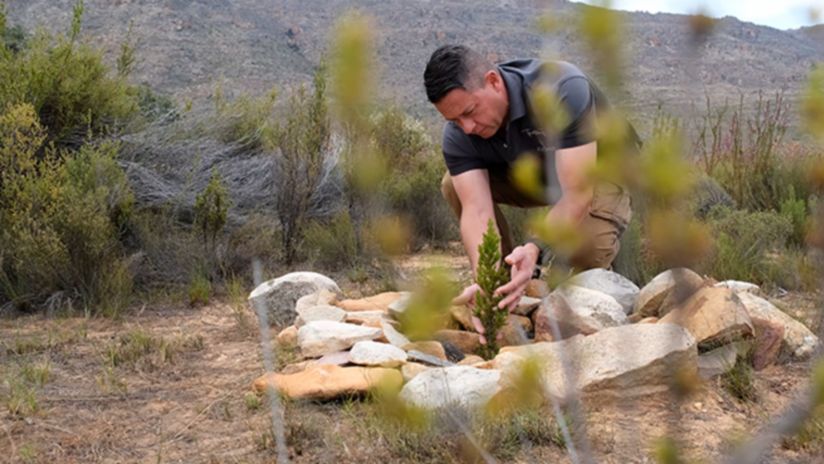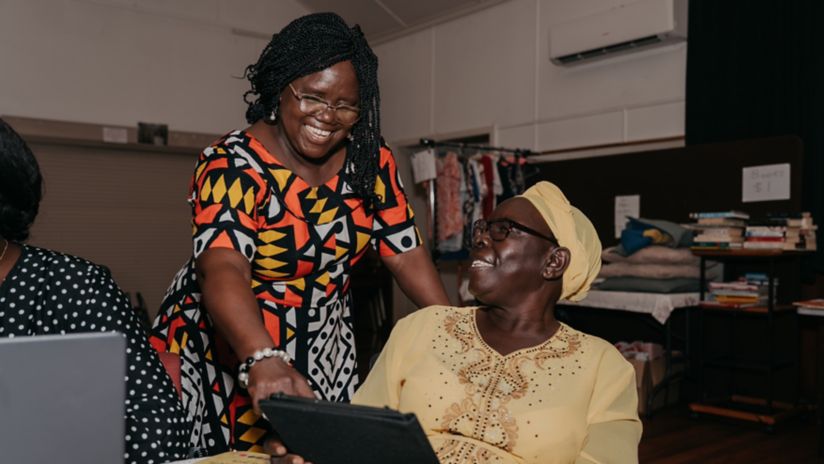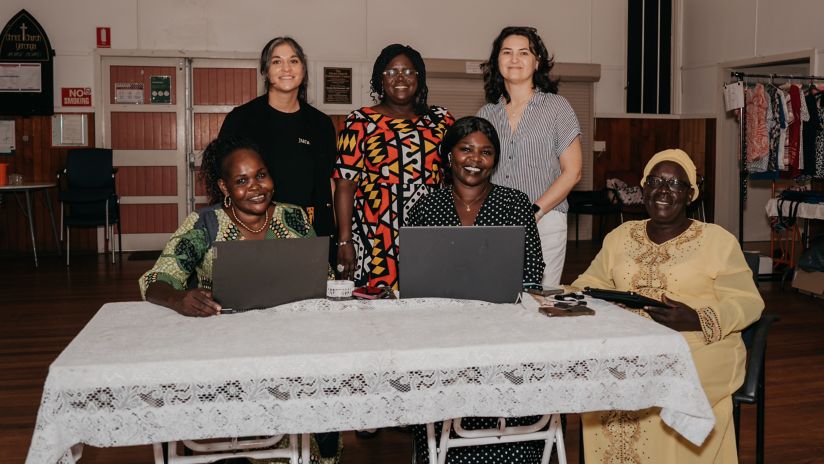Planting new life with AI
Telstra Foundation is a founding partner of Humanitech, (an initiative of the Australian Red Cross). This year the Humanitech Lab innovation program is supporting innovative drone-planting company AirSeed.
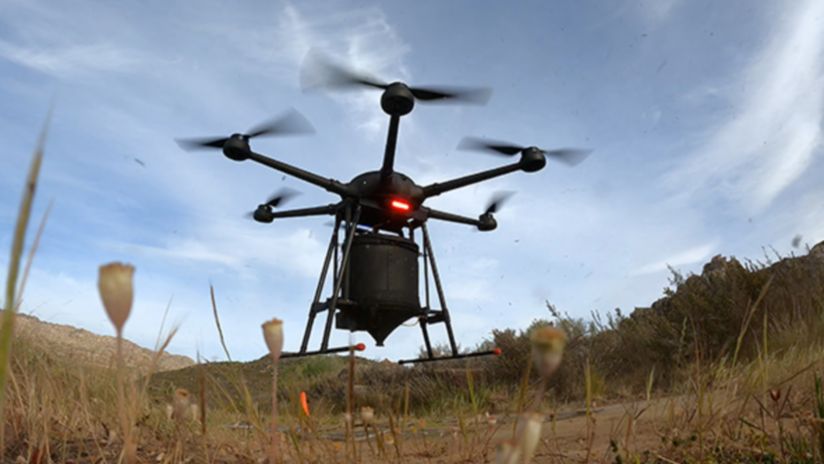
Brilliant tech products with a humanitarian focus
After its first year of supporting brilliant tech projects with a humanitarian focus, the Humanitech Lab had an ambitious task on its hands: to identify a second series of projects using cutting-edge technology to tackle some of the world’s most urgent humanitarian issues. Technology never stands still – and nor do the young futurists behind it.
In its second year of funding from the Telstra Foundation, the Lab was faced with a difficult choice: its highly-competitive innovation program had received visionary applications from all corners of Australia and New Zealand, all of them worthy. After lengthy deliberations, the Australian Red Cross initiative selected four projects to pilot through its innovation program alongside local communities.
“These trailblazing innovations combine cutting-edge technologies with community knowledge to create real-world change, and we’re thrilled to be able to fast-track their solutions alongside Australian communities,” says Adelide Mutinda, Humanitech’s Innovation Program Manager.
Here we take a look at how one of these AI projects is replanting lands that have been burned or washed away in devastating fires or floods.
AirSeed: securing the future of the land, from the sky
No matter how fantastic your technology, it’s hard to make a difference in a new place without strong buy-in and belief from the local community. That’s the lesson the innovative drone-planting company AirSeed learned when it arrived in Lismore in spring 2022, soon after New South Wales’ Northern Rivers region had experienced its worst floods in living memory.
While humanitarian agencies, including Red Cross worked tirelessly to meet the immediate needs of urban residents who’d lost both homes and livelihoods, AirSeed was investigating a new type of support for rural landowners whose properties had been ravaged by floods that toppled trees and washed away hillsides.
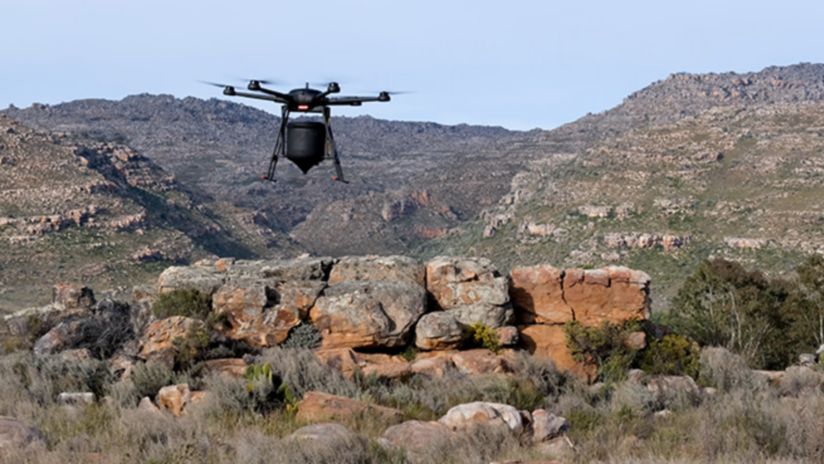
Pioneering seed pod technology
When AirSeed was chosen as one of Humanitech’s innovation lab cohorts last September, it was already in discussions with dozens of families keen to replant their properties. The tech uses the company’s pioneering technology: giant drones to drop carefully-prepared seed pods in precise locations mapped by its GPS and AI algorithms.
Now through its Humanitech project and a piloting grant from the Telstra Foundation, the company has been able to scale up both its planting and its outreach to landowners and Landcare groups anxious to accelerate the replanting of their devastated lands.
“Because Red Cross already has a strong presence in the area, their experts on the ground have been able to provide invaluable insights which have helped us plan our community engagement and needs assessments in really ethical and responsible ways,” says Jonathan Dawe, who’s overseeing the company’s outreach in Lismore.
Those ways include town hall meetings where AirSeed plans its replanting with community groups, and workshops where residents can roll up their sleeves and learn how to make seed pods, which include a potent mixture of nutrients and minerals designed to support germination and early-stage growth. AirSeed’s drones are capable of planting an incredible 40,000 pods a day and up to 16 different species on each flight.
“Lismore has shown us how we can scale up these projects, collaborating with landowners to identify the right species of trees, shrubs and ground cover, and the best planting windows,” explains Jonathan. “The drones are extremely useful in these damaged environments – where it can be dangerous to plant by hand on landslips that are still very precarious.”
AirSeed’s drones are capable of planting an incredible 40,000 pods a day and up to 16 different species on each flight.
Projects dedicated to the improvement of koala habitats, wetlands and carbon farms
Four years after its formation, Sydney-based AirSeed is engaged in a growing number of Australian projects, from koala habitat restorations to the famous Winton Wetlands in Melbourne, to a ‘carbon farm’ at Yarrowyck in northern NSW, where Telstra is planting 158,000 trees to offset its own emissions.
“But Lismore is a special case for us,” explains Jonathan. “The devastation here has been extreme, with giant holes ripped in the landscape… In many places, the top soil has shifted and stripped the land back to bare rock. We have to carefully design each flightpath so the drones plant the right species in the right locations to restore what’s been lost. Each site represents a unique challenge and requires a specific planting approach.
“We’re planting a full ecological suite including ground cover, vines, shrubs and trees, and we hope to see robust vegetation returning in the coming years, which will build greater resilience into the landscape. The community has a strong connection to the land and the landholders take their stewardship seriously. Getting our community engagement right has been vital.
“It’s been a privilege to work so closely with Landcare groups and residents and have them welcome us so warmly into their community after such devastation. We don’t just plant and walk away: we’re committed to working alongside this community in the long term, to make sure our planting can make a real difference on their land.”
